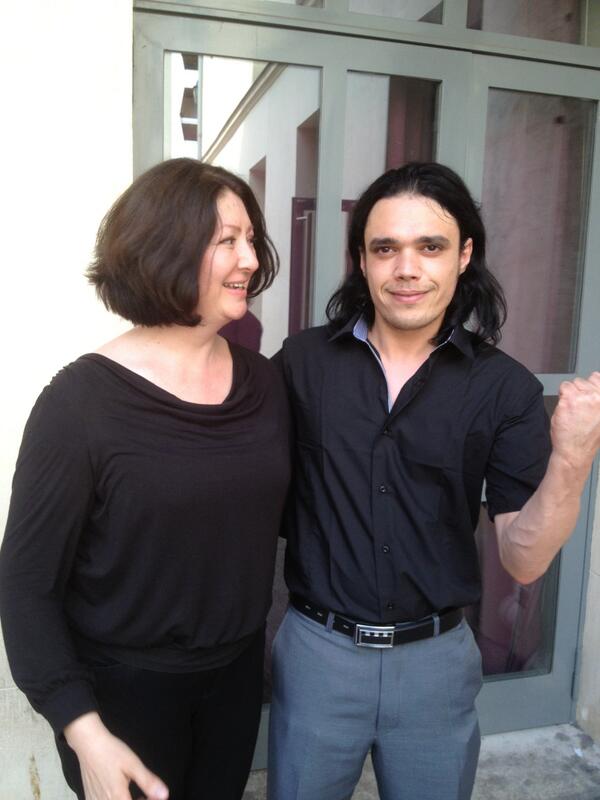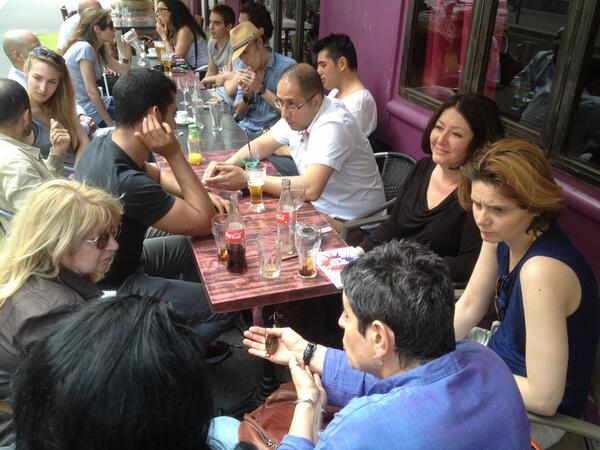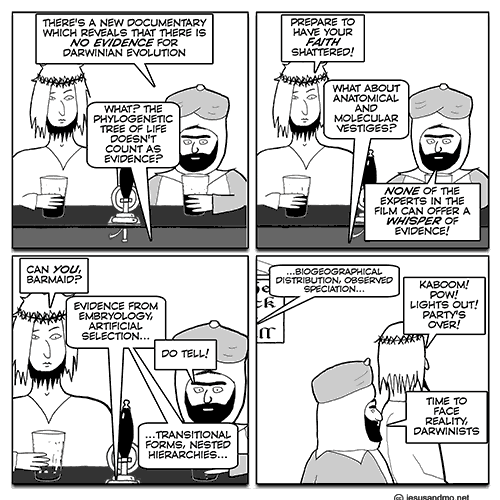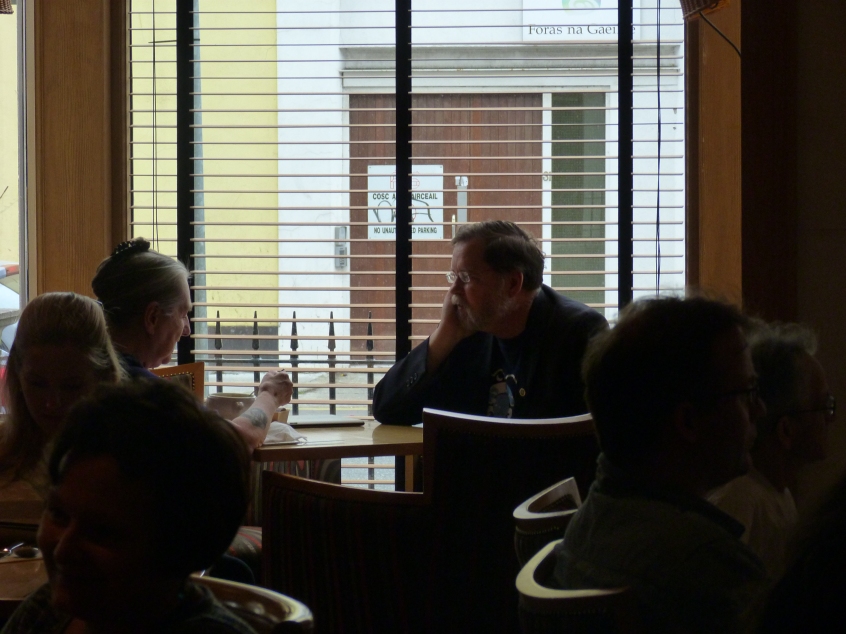Timothy Dolan again. Remember Timothy Dolan? Former archbishop of Milwaukee? Now archbishop of New York? Also a cardinal?
The Timothy Dolan who whined and complained, in March 2010, about the unfair and meany way journalists would keep reporting on the Catholic church’s habit of protecting priests who rape children. He seems to have removed that post from his archepiscopal blog now, but the Internet archive still has it.
So Friday’s headline, only the most recent, stings us again: “Doctor Asserts Church Ignored Abuse Warnings,” as the psychiatrist who treated the criminal, Dr. Werner Huth, blames the Church for not heeding his recommendations.
What adds to our anger over the nauseating abuse and the awful misjudgment in reassigning such a dangerous man, though, is the glaring fact that we never see similar headlines that would actually be “news”: How about these, for example?
– “Doctor Asserts He Ignored Abuse Warnings,” since Dr. Huth admits in the article that he, in fact, told the archdiocese the abusing priest could be reassigned under certain restrictions, a prescription today recognized as terribly wrong;
– “Doctor Asserts Public Schools Ignored Abuse Warnings,” since the data of Dr. Carol Shakeshaft concludes that the number of cases of abuse of minors by teachers, coaches, counsellors, and staff in government schools is much, much worse than by priests;
– “Doctor Asserts Judges (or Police, Lawyers, District Attorneys, Therapists, Parole Officers) Ignored Abuse Warnings,” since we now know the sober fact that no one in the healing and law enforcement professions knew back then the depth of the scourge of abuse, or the now-taken-for-granted conclusion that abusers of young people can never safely work closely with them again.
What causes us Catholics to bristle is not only the latest revelations of sickening sexual abuse by priests, and blindness on the part of some who wrongly reassigned them — such stories, unending though they appear to be, are fair enough, — but also that the sexual abuse of minors is presented as a tragedy unique to the Church alone.
No, it isn’t, but even if it were, you self-justifying piece of crap, that would be because of the way you presume to inhabit the moral high ground and to tell everyone else what to do. The point is that your claims to moral elevation are disgusting and contemptible, and your attempts to boss everyone and to meddle with politics while enjoying tax-exempt status are an outrage.
And you haven’t learned a god damn thing.
Files released by the Roman Catholic Archdiocese of Milwaukee on Monday reveal that in 2007, Cardinal Timothy F. Dolan, then the archbishop there, requested permission from the Vatican to move nearly $57 million into a cemetery trust fund to protect the assets from victims of clergy sexual abuse who were demanding compensation.
That’s our morally elevated cardinal and archbishop – maneuvering to protect the church’s vast – and tax-exempt – bank account from the claims of people who were raped by that church’s employees. Cynical, callous, and selfish – that’s your man Cardinal Dolan.
Cardinal Dolan, now the archbishop of New York, has emphatically denied seeking to shield church funds as the archbishop of Milwaukee from 2002 to 2009. He reiterated in a statement Monday that these were “old and discredited attacks.”
However, the files contain a 2007 letter to the Vatican in which he explains that by transferring the assets, “I foresee an improved protection of these funds from any legal claim and liability.” The Vatican approved the request in five weeks, the files show.
So he’s a liar as well.
The release of more than 6,000 pages of documents on Monday was hailed by victims and their advocates as a vindication and a historic step toward transparency and accountability. They were well aware that the archives would bring unusually intense scrutiny to the country’s most high-profile prelate, Cardinal Dolan, who as president of the United States Conference of Catholic Bishops and the archbishop of New York has sought to help the church turn the corner on the era of scandal.
Cardinal Dolan has been regarded by many Catholics as part of the solution. In public appearances, he has expressed personal outrage at the harm done to children, apologized profusely and pledged to help the church and the victims heal.
But the documents lift the curtain on his role as a workaday church functionary concerned with safeguarding assets, persuading abusive priests to leave voluntarily in exchange for continued stipends and benefits, and complying with Rome’s sluggish canonical procedures for dismissing uncooperative priests who he had long concluded were remorseless and a serious risk to children. In one case, the Vatican took five years to remove a convicted sex offender from the priesthood.
Can we stop treating these people as moral authorities? Like, right now?
In 2007, the year Cardinal Dolan asked to transfer the funds, the Wisconsin Supreme Court issued a decision that in effect lifted an unusual law that had long shielded the church from sexual abuse lawsuits. When he was later accused of trying to shield church funds, Cardinal Dolan said on his blog in New York that it was “malarkey” and “groundless gossip.” Archbishop Listecki and former Auxiliary Bishop Sklba invoked a theme that many other church officials have used in the past to explain their conduct: that their missteps reflected a broader lack of awareness about child sexual abuse in society.
Archbishop Listecki wrote that he did not want to make excuses, but that church officials had relied on the advice of doctors and therapists who were “seemingly more concerned about ‘Father’ than about the children.” He said the documents would reveal “the progression and evolution of thinking on this topic.”
However, the Rev. James Connell, a priest in the Milwaukee Archdiocese who helped to form a group called Catholic Whistleblowers, said in an interview that he did not find this claim credible.
“I was in high school in the 1950s,” he said, “and I learned about statutory rape in high school. An adult having sexual activity with a minor is a crime. We knew about it then, so you can’t claim that social thought changed.”
Besides which, the whole point of the Catholic church and its claims to moral authority and right to boss everyone – the whole point, I say – is that it’s timeless and absolute. It’s not supposed to be dependent on things like learning about statutory rape in high school! IT’S SUPPOSED TO BE DIVINE FUCKING REVELATION. If baby Jesus forgot to tell them that fucking little children in secret and threatening them so that they’ll keep the secret is not a nice thing to do – WHAT ELSE DID BABY JESUS FORGET TO TELL THEM?
They are not the moral bosses of us. They are benighted, ignorant, reactionary, misogynist party bureaucrats who protect themselves and each other at the expense of everyone else.
(This is a syndicated post. Read the original at FreeThoughtBlogs.)




